The fame of nutmeg as a spice with an unique and specific aroma and taste dates back to antiquity and reaches today, when nutmeg is an integral part of many ethnic cuisines. Italian, Caribbean, Indian, French, Greek cuisine, even dishes characteristic of Latin America and the Middle East don't go without the use of small doses of nutmeg.
History of Nutmeg
The nutmeg tree (Myristica fragans) is from the Myristicaceae family. It is evergreen and reaches up to 15 meters in height. Nutmeg is native to the Banda Islands and the Moluccas, but the cuisine there does not pay much attention to the culinary benefits of the spice. It became a favorite of the Arabs who traded with the Far East from ancient times until the end of the Middle Ages. A major spice in Arabic cuisine, nutmeg was carried to Europe.
Nutmeg quickly became popular with Europeans, but at the very beginning it was too difficult to obtain, because it was imported in small quantities. In the 16th century, nutmeg enjoyed great interest after the Portuguese conquered the Moluccas. They immediately imposed a monopoly on the export of the spice.
After about 100 years, the archipelago was taken over by the Dutch, who in turn vigilantly guarded the nutmeg plantations and trees. Anyone who dared to pluck even a nut faced severe punishment, with the last option being that the offender would lose their arm. The French then succeeded in obtaining seedlings from the tree and planted nutmeg plantations on the island of Mauritius.
Selection and storage of nutmeg
In stores, you can find both ground and whole nutmeg seeds. When nutmeg is powdered, it is easier to use, which is why this is the most common form you will find it in. Store the spice in tightly closed airtight jars in a dry, dark place.
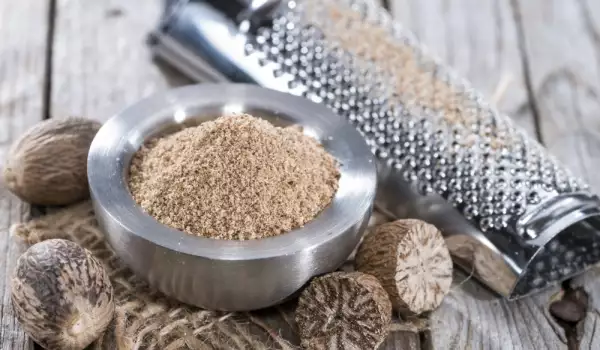
Cooking with Nutmeg
The culinary treatment of the spice is extremely appropriate if it goes in combination with black pepper, bay leaf, onion, parsley, roots for soup. Nutmeg is an ideal seasoning for various fricassees, pates, soups, minced meat dishes, sauces, vegetable dishes. Without it, the famous Bechamel sauce with mushrooms would not have its characteristic taste. In Indian cuisine, nutmeg is used almost entirely in pastries. In European cuisine, the nutmeg and its peel are often used in potato dishes.
Nutmeg and its skin have similar taste qualities, with the nutmeg being slightly sweeter. The skin has a light orange, saffron-like color, so it is preferred in the preparation of light sauces, because it gives them a characteristic and appetizing color. The yield of nutmeg skin is only 15% of that of the whole spice, which is why it is more expensive. Nutmeg is a raw material for a widely used essential oil. It is obtained by steam distillation of ground nutmeg and is widely used in perfumery and pharmaceuticals. Nutmeg essential oil is even used in the production of Coca-Cola.
Benefits of nutmeg
Since time immemorial nutmeg has been used to make cough syrups. In traditional medicine, nutmeg and its oil have been used for diseases related to the nervous and digestive systems. Externally nutmeg oil can be applied against rheumatic pains and as an emergency remedy for toothache. For digestive disorders, nutmeg essential oil is mixed drop by drop with honey. It also works well for bad breath.
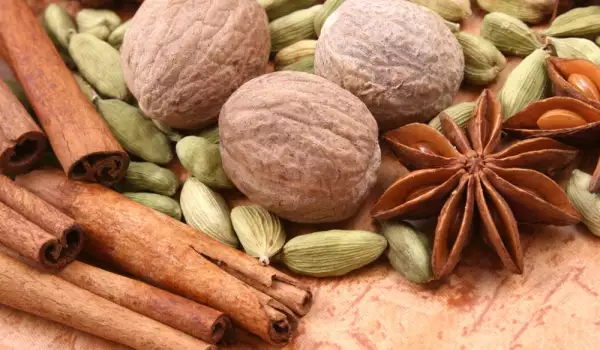
For vomiting, gastroenteritis, chronic diarrhea or upset stomach, you can apply 3 to 5 drops of the oil mixed with honey or sugar. Nutmeg can have an extremely beneficial effect on a person's nervous system, because of the myristicin contained in it. It stimulates the production of serotonin - the hormone of happiness and calmness. A good idea is to add some nutmeg to your tea.
Here are more nutmeg benefits:
1. Improves digestion
Nutmeg is excellent for digestion. It aids the process while relieving conditions of stomach ulcers, gas and a number of stomach ailments. To have a calm stomach, you can try how this old spice works for you too.
2. A valuable remedy in the fight against insomnia
It turns out that you can fight insomnia effectively if you have a dish seasoned with nutmeg before going to bed. An option is to drink tea from the famous spice. According to a very old recipe, against insomnia, you can sprinkle warm milk, flavored with honey, with a little nutmeg. There are several options, try the best one for you and choose.
3. Relieves pain
Thanks to its rich composition, nutmeg acts as a pain reliever. It also lowers stress and helps you feel better in your own skin.
4. Gets rid of bad breath
Bad breath is a problem for many people and it can be noticed at different ages. This condition lowers our self-esteem and definitely does not make us the most pleasant company for others. If you suffer from halitosis, you should definitely consult a doctor or dentist. Specialists will guide you on what to do, as the problem is not always due to diseases in the oral cavity. In the meantime, you can relieve the condition with a little nutmeg. Other anti-bad breath foods are yogurt, green apples, parsley.
5. Protects the liver
Nutmeg has a good effect on the liver. This spice protects it from a number of diseases and contributes to the faster recovery of existing ones. Of course, if your liver is suffering, you should definitely seek medical help, because things can be very serious.
Nutmeg Oil
The antiseptic properties of nutmeg make it a useful product in the production of antiseptic soaps. Nutmeg essential oil is also used for bathing due to its refreshing nature. Because nutmeg oil is antibacterial and antiseptic, it is used in many cosmetic products designed for dull, oily or wrinkled skin. It is also used in making lotions and aftershave creams.
Nutmeg oil is good for digestion and helps relieve stomach aches and remove gas from the stomach and intestines.
This oil blends well with many other essential oils, including lavender oil, rosemary oil, orange oil, black pepper oil, sage oil, eucalyptus oil, ginger oil, and ylang-ylang.

Nutmeg oil is very beneficial for treating muscle and joint pain as it is an excellent sedative. It is also anti-inflammatory, so massaging nutmeg oil on the affected area is effective for arthritis, rheumatism and lumbago.
Nutmeg oil is an essential part of Chinese medicine when it comes to treating abdominal pain and inflammation. It also reduces joint swelling. Often overexertion leads to pain in the body or muscles and in such cases this oil can be very helpful for getting rid of the pain.
Harms from nutmeg
If used in small doses, nutmeg does not have any negative effects on the human body. A high dose of nutmeg is around 10 grams and above and then it starts to have mild to medium strong hallucinogenic effects. In case of overdose, nutmeg is able to induce visions and a pleasant sensation that resemble the effects of marijuana use. Hallucinations and intoxication can last up to 24 hours after the initial climax, which is about 12 hours after ingesting an overdose of nutmeg.
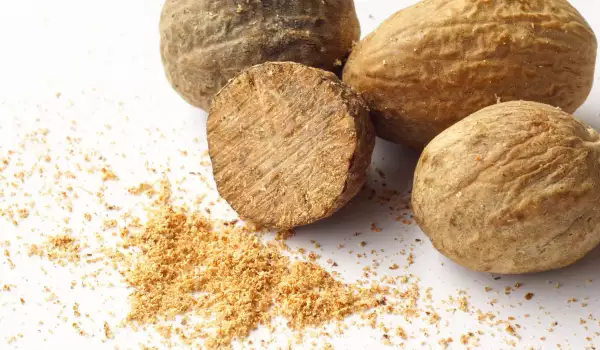
At the same time, unpleasant side effects such as hallucinations, vomiting, dehydration, general body pain may occur up to 36 hours after ingestion. Regular and excessive use of nutmeg can harm the liver. When injected intravenously, nutmeg acts as a strong poison. In the past, nutmeg was used to induce abortion. Large doses of the spice swallowed at once are extremely dangerous - they lead to convulsions and palpitations and sometimes to a fatal end.
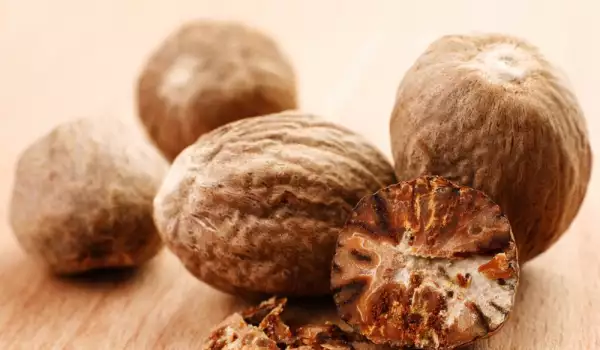
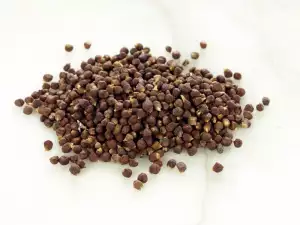
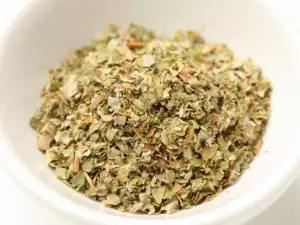

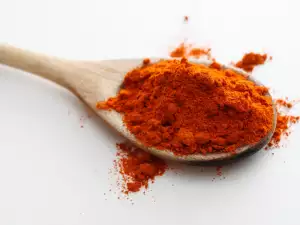




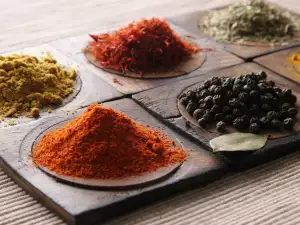










Comments